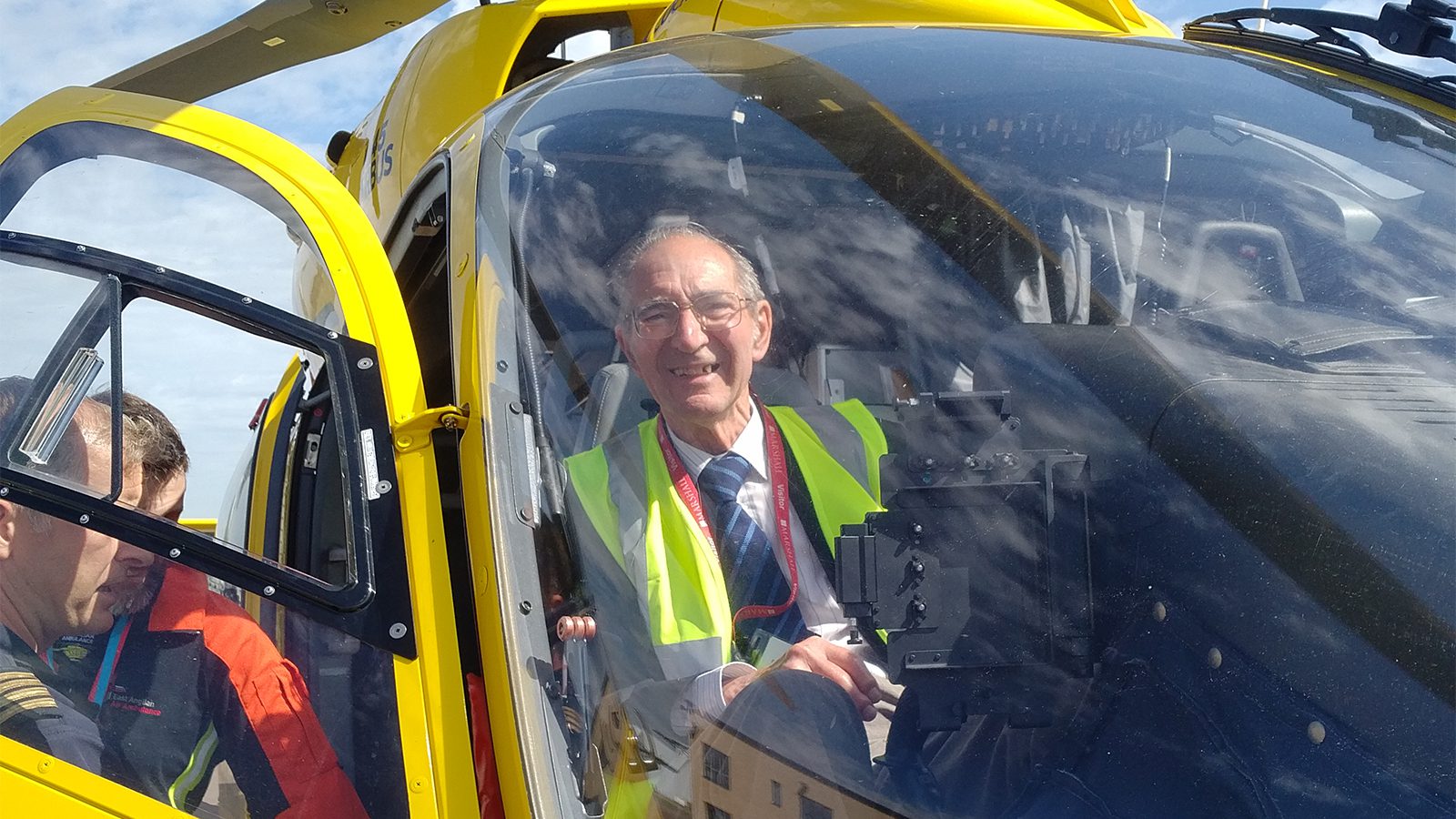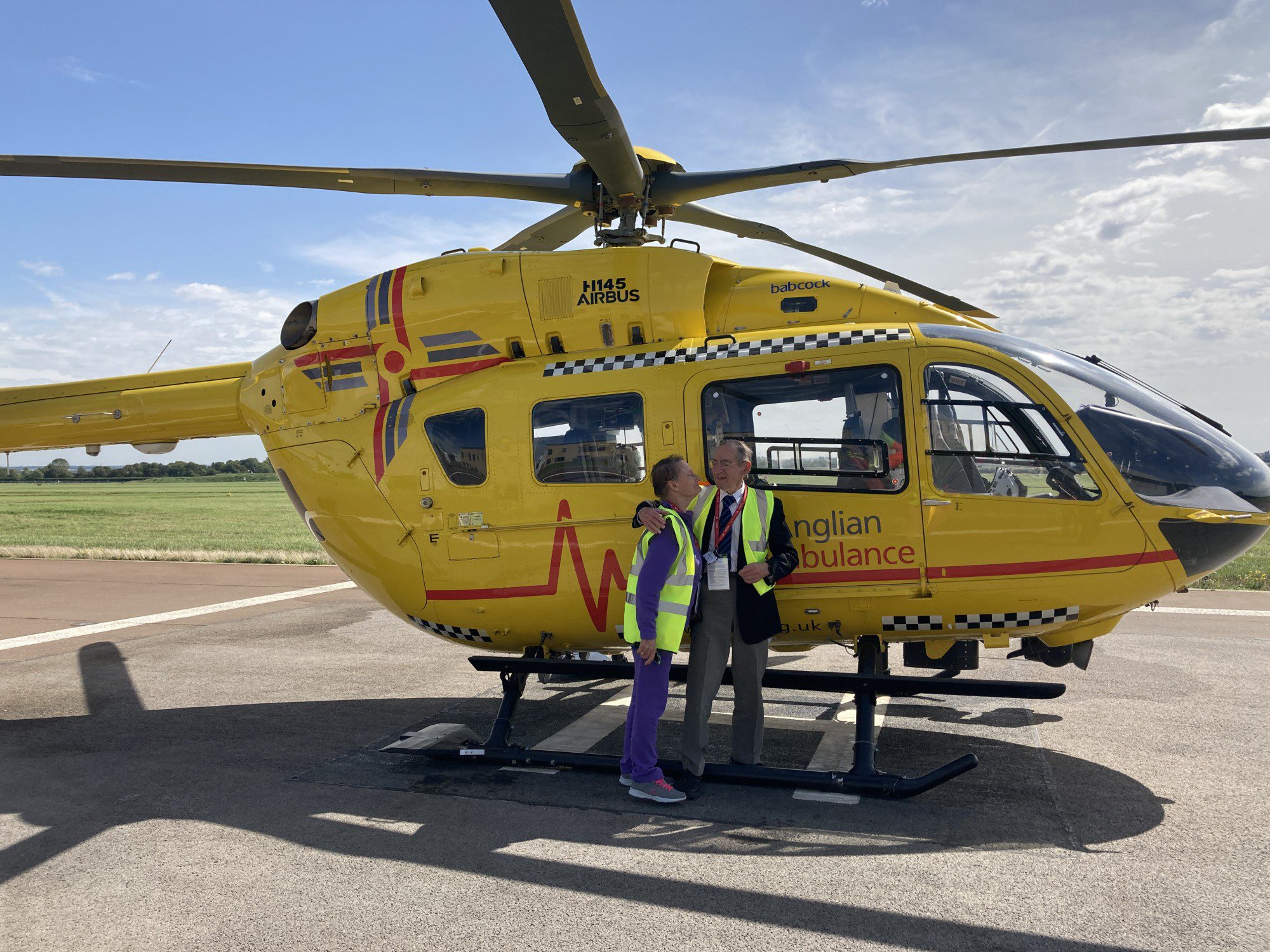David Durrant
When David Durrant (age 81) from Ely was walking to his local shop in November 2022, he suffered his second cardiac arrest, after previously surviving one in 2007. We were able to reach David quickly to assist the East of England Ambulance Service and provide him with the advanced pre-hospital care he needed. We recently spoke to David about how the care from EAAA gave him the best chance of recovery to be home in time for Christmas.
David is unsure who reached him first. “It may have been an ambulance or a First Responder, but they started to give me CPR.”
When the East of England Ambulance Service (EEAST) crew arrived, David was transferred from the roadside into the back of the ambulance, where they used a defibrillator to shock him four times to restore his normal heart rhythm. In the meantime, East Anglian Air Ambulance (EAAA) were called.
“Dr Patricia, Dr Ben and Critical Care Paramedic Andy from EAAA’s Cambridge base reached me quickly by Rapid Response Vehicle. I hadn’t realised that EAAA also had vehicles as well as helicopters.” David says.

EAAA operates Rapid Response Vehicles (RRVs) from our bases in Norwich and Cambridge. All of our response vehicles carry the same equipment as our helicopters and give our crews an alternative way of getting to patients in the quickest time possible.
EAAA gave David the critical care he needed at the scene to give him the best chance of surviving and recovering. This included sedating him and using a ventilator to take over his breathing ready for the journey to hospital.
David continues: “Dr Patricia then accompanied me by ambulance to Addenbrooke’s Hospital, where I spent over a month in hospital, including 36 hours in the Intensive Care Unit and 24 hours in the High Dependency Unit.”
While in Addenbrooke’s, David had an implantable cardioverter defibrillator (ICD) fitted, which can help to regulate abnormal heart rhythms. David was later transferred to Papworth Hospital where he also had two stents put in. This was a procedure which wasn’t quite as straightforward as initially hoped as some calcification was discovered.

“My wife Maggie visited me in the hospital throughout, and I was able to return home with her in early December. I took it easy for a few weeks and enjoyed Christmas. It was great to be home, and I know that I was extremely lucky.”
David started cardiac rehab in January 2023 until March. He is now doing well. He and his wife go dancing a couple of times a week. David swims regularly, aiming to do 50 lengths. Because he was unable to drive for six months after being fitted with his ICD, he has also done plenty of walking. “I’ve worn out a pair of shoes!” He laughs.
David was contacted by Ruth from EAAA’s Aftercare service shortly after his cardiac arrest. She recently arranged for a visit to EAAA’s Cambridge base so David could meet the team who attended him. He also presented them with a very generous cheque for £1,000.
“It was a great day!” David adds. “Obviously, I was unconscious when the crew from EAAA attended me in November, but the care they gave me was excellent and efficient. I am so glad they were there! You never know what might have happened otherwise.”